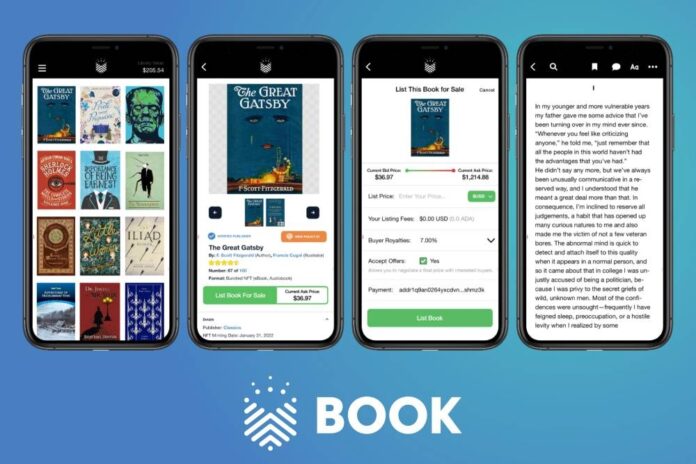Book.io allows readers to truly own the e-books and audio books they love through NFT technology. — ETX Studio pic
Follow us on Instagram, subscribe to our Telegram channel and browser alerts for the latest news you need to know.
NEW YORK, Oct 5 — An artwork, a tweet, a piece of music… Any digital file can potentially be turned into an NFT. These non-fungible tokens are revolutionising ideas about ownership of goods, which could pave the way for a new market for the book industry.
Book.io aims to be at the heart of this revolution. This American start-up is planning to “create an NFT marketplace and platform that will forever change digital reading,” as it explains on its website. It will offer readers the opportunity to truly own the e-books and audio books they love through NFT technology.
Literature lovers are able to buy NFTs of classics such as Dracula by Bram Stoker, Moby Dick by Herman Melville, War of the Worlds by HG Wells on the Book.io sales platform. These NFTs not only give them ownership of an e-book, but will also allow them to read the literary works they are associated with on an application specially designed by the Texas-based company.
Once they have finished reading the work, NFT holders are given US$BOOK tokens. These tokens will allow them to resell their NFTs whenever they want, and to acquire new ones to change up their virtual library. For each of these transactions, the authors and publishers of the literary works associated with Book.io’s NFTs receive royalties. According to Book.io, this is “the next chapter in the story of books.”
The company has reportedly already generated more than US$250,000 (RM1.1 million) in sales revenue since launching its sales platform and reading app on July 20. It is currently in talks with various publishing houses to expand its catalog of literary NFTs.
Book.io has already signed a partnership with Ingram, the leading book distributor and wholesaler in the United States, which also specializes in print-on-demand. This partnership will allow it to use Lightning Source, the group’s print-on-demand service, to combine the e-book NFTs it sells with “physical” books printed to order. In other words, NFT holders will be able to receive a paper copy of the book associated with the non-fungible token they hold.
The question remains: is there a market for non-fungible literary tokens? Nothing is certain. However, some book companies such as German audio and digital book distributor Bookwire continue to bet on this technology. In November, it launched its own platform for selling NFTs dedicated to books, Creatokia. But initiatives of this kind are still rare in the publishing world, which doesn’t stop Joshua Stone, CEO of Book.io, from being optimistic on the matter. “We believe that the golden era of digital books has only just begun,” he said, following the announcement of his partnership with the Ingram Group. — ETX Studio


